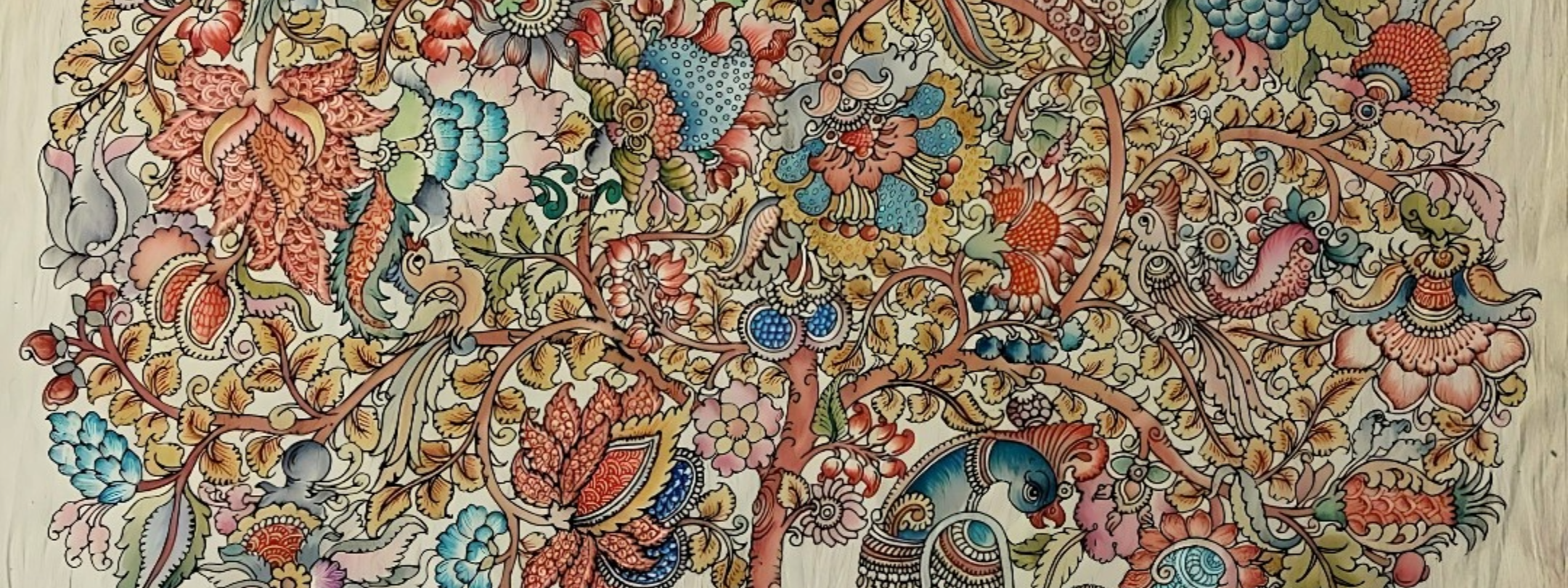Kalamkari
Kalamkari is a traditional Indian art form that is believed to have originated in the temples of Andhra Pradesh in India and has been practiced for over 3,000 years. The name "Kalamkari" is derived from two Persian words, kalam which means ‘pen’ and kari which means ‘craftsmanship’. It involves hand-painting or block-printing intricate designs on cotton or silk fabrics using a pen made from bamboo and cotton, and natural dyes made from plant extracts. There are two types of Kalamkari art: Srikalahasti style and Machilipatnam style. Srikalahasti style involves hand-painting using natural dyes, while the Machilipatnam style involves block printing. The art was used to create unique religious identities for the temples and their deities and was featured on scrolls, temple hangings, and chariot banners. In present-day form, Kalamkari art typically depicts flowers, peacocks, and paisleys as well as scenes from Hindu mythology and the epics such as the Ramayana, Mahabharata, and Puranas, and are characterized by their intricate details and vibrant colors.
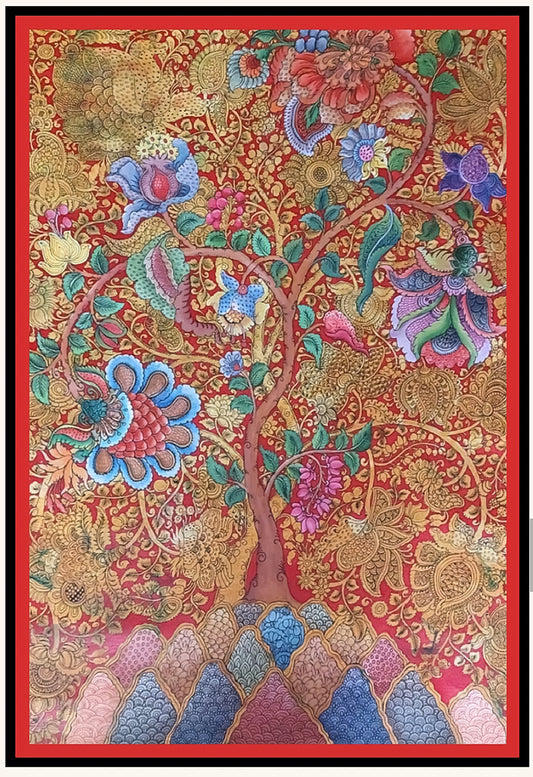
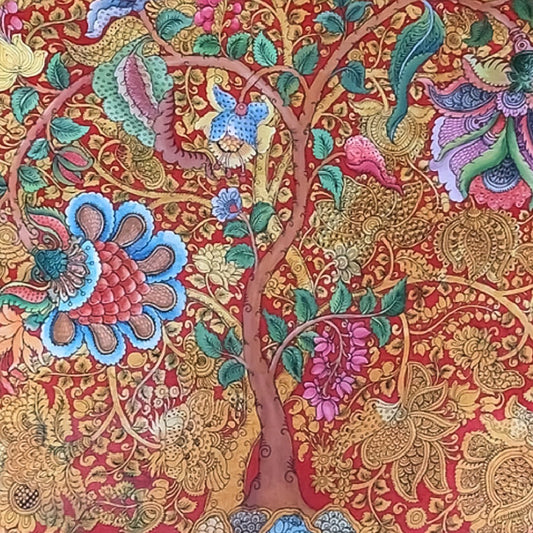
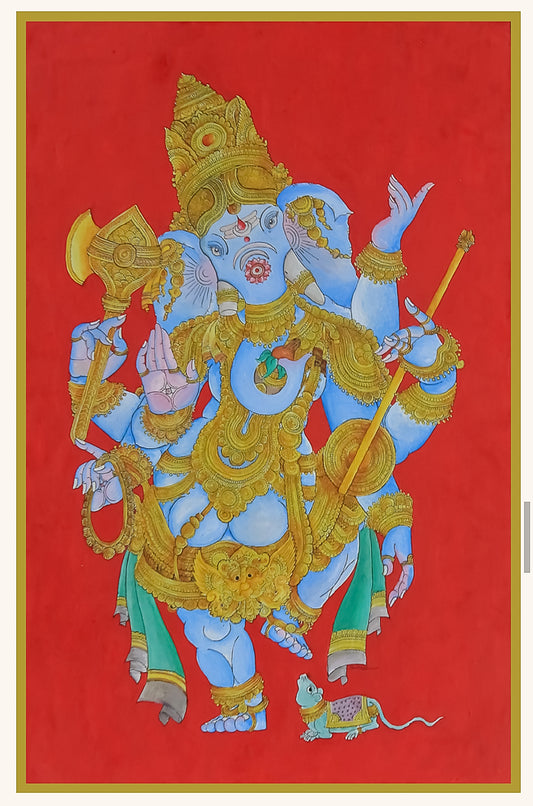
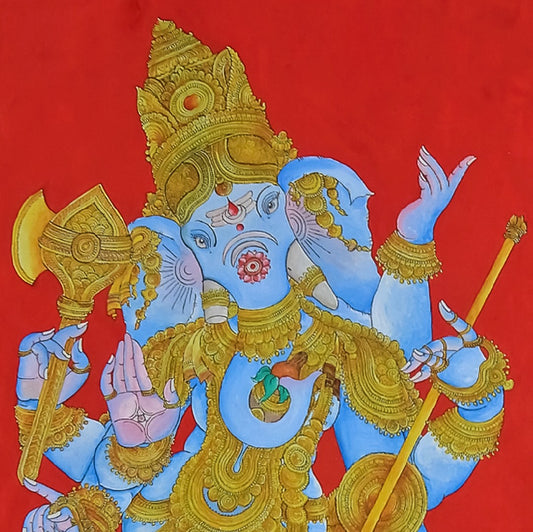


.png?v=180585433461421961291732270581)
